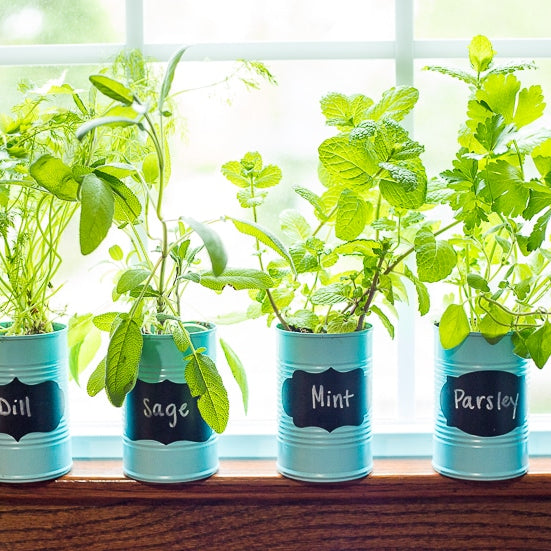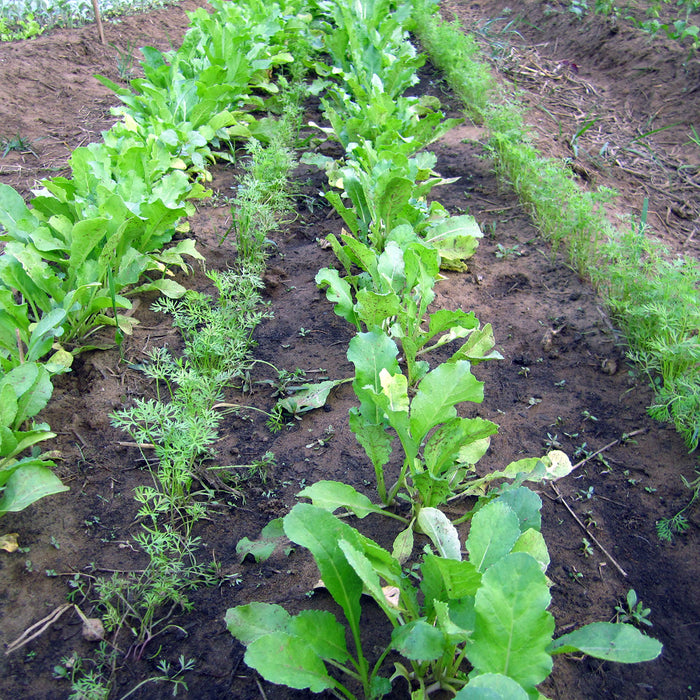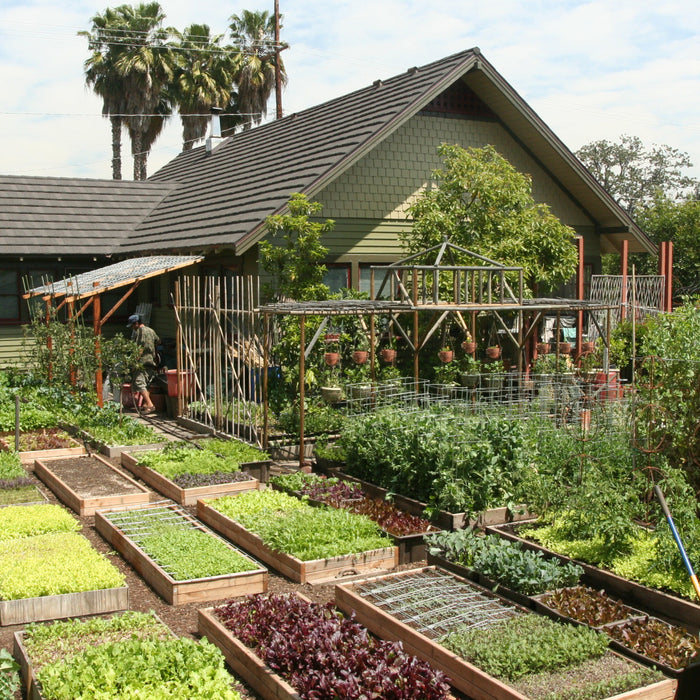

The Ultimate Guide to Homesteading and Raising Chickens: Tips, Tricks, and Tools
The Ultimate Guide to Homesteading and Raising Chickens: Tips, Tricks, and Tools
Discover everything you need to know about homesteading and raising chickens in this comprehensive guide. Learn tips and tricks for successful homesteading, including best practices for raising and caring for chickens. Find out about the essential tools and equipment you need to get started, and get inspired to create your own sustainable and self-sufficient lifestyle. Whether you're a seasoned homesteader or just starting out, this guide is the perfect resource to help you achieve your goals.
Homesteading is a lifestyle that involves living a self-sufficient and sustainable life, often on a farm or rural property. This lifestyle is becoming increasingly popular as people seek to reconnect with nature, reduce their carbon footprint, and live a more self-sufficient and prepared life. In this post, we'll explore the basics of homesteading and provide some tips and product recommendations for preppers to help you get started.

What is Homesteading?
Homesteading is a lifestyle that emphasizes self-sufficiency, sustainability, and the simple life. It's about growing your own food, raising livestock, and living off the land. Homesteaders strive to be self-sufficient in their food, water, and energy needs, and to reduce their dependence on modern conveniences like grocery stores and utility companies.
Homesteading is not just about survival, it's also about living a fulfilling life. People who homestead often find that they have more time to spend with their families, pursue hobbies, and live a more fulfilling life. They also often have a greater sense of connection to the land, their community, and the natural world.
Free PDF Download : The Grow Your Own Food Handbook: A Back to Basics Guide to Planting, Growing, and Harvesting

Why Homesteading?
There are many reasons why people choose to homestead. Some people are drawn to the idea of self-sufficiency and independence, while others are motivated by environmental concerns and the desire to live a more sustainable life.
One of the biggest benefits of homesteading is the ability to grow your own food. By growing your own food, you can reduce your carbon footprint, support local agriculture, and know exactly what's in your food. Plus, there's nothing quite like the taste of fresh, organic produce from your own garden!
Another advantage of homesteading is the ability to raise livestock. By raising chickens, goats, or other animals, you can provide for your own food needs and reduce your dependence on grocery stores. You can also use the manure from your livestock to fertilize your garden, reducing the need for chemical fertilizers.
Finally, homesteading can provide a greater sense of community and connection to the land. By living a self-sufficient life, homesteaders often find that they have more time to spend with their families, pursue hobbies, and get involved in their communities.
Read :
Top 100 Things You Should Start Stocking Up On for When SHTF
Getting Started with Homesteading
So, you're interested in homesteading and want to know how to get started? The first step is to identify your goals and assess your resources. Do you want to grow all of your own food? Raise livestock? Live off-grid? Once you have a clear idea of your goals, you can start to plan and make decisions about how to achieve them.
One of the most important decisions you'll make when starting a homestead is choosing a property. Consider factors such as location, size, access to water, and the local climate when selecting a homestead. You'll also want to make sure that the property has enough land to support your gardening and livestock needs.
Once you have a property, it's time to start planning your garden and livestock. Consider what types of crops and animals will thrive in your climate, and make sure to plan for crop rotation, composting, and other sustainable gardening practices.
You'll also want to make sure that you have the necessary tools and equipment to support your homesteading lifestyle. This might include items such as gardening tools, fencing, water containers, and a water filtration system.
Preparing for Emergencies
Homesteading is not just about living a self-sufficient life, it's also about being prepared for emergencies. Whether it's a natural disaster
like a hurricane or a power outage, being prepared for emergencies is an important part of homesteading. Here are some tips and product recommendations for preppers to help you prepare for emergencies:
-
Store Non-Perishable Food and Water: Having a stock of non-perishable food and water is essential in the event of an emergency. Consider storing items like canned goods, dried fruits, nuts, and crackers. You should also have a water filtration system and water storage containers on hand.
-
Invest in a Generator: In the event of a power outage, having a generator can be a lifesaver. Look for a generator that is fuel-efficient, easy to start, and can run for several hours.
Get a Good First Aid Kit: A well-stocked first aid kit is essential for any emergency situation. Look for a kit that includes basic first aid supplies like bandages, gauze, antiseptic wipes, and pain relievers.
Invest in a Portable Stove or Camping Gear: If you need to evacuate your home or are without power for an extended period of time, having a portable stove or camping gear can be a lifesaver. Look for a stove that runs on multiple fuels, like propane or gasoline, and consider purchasing a camping gear kit that includes a tent, sleeping bag, and other essentials.
-
Consider a Solar-Powered Charger: In the event of a power outage, having a solar-powered charger can be a lifesaver. Look for a charger that can power multiple devices, like your phone, tablet, and portable stove.
-
Get a Good High-Lumen Flashlight: A high-quality flashlight is essential for any emergency situation. Look for a flashlight that is bright, durable, and water-resistant.
-
Invest in a Good Emergency Radio: In the event of a natural disaster or power outage, having an emergency radio can be a lifesaver. Look for a radio that is solar-powered, has a hand-crank, and can receive both AM and FM signals.
Product Recommendations for Preppers
-
Augason Farms Dried Whole Eggs: These dried whole eggs are a great source of protein and can be used in a variety of recipes. They have a long shelf life and are easy to store, making them a great addition to your emergency supplies.
-
Wise Company Emergency Food Supply: This emergency food supply includes a variety of non-perishable food items, like entrees, breakfasts, and drinks. It's easy to store and has a long shelf life, making it a great option for preppers.
-
DuroMax XP4400E Gas Powered Portable Generator: This generator is fuel-efficient, easy to start, and can run for several hours. It's a great option for preppers who need a backup power source in the event of a power outage.
-
Adventure Medical Kits Ultralight & Watertight Medical Kit: This first aid kit is lightweight, water-resistant, and contains all the essentials you need to treat minor injuries. It's a great option for preppers who want to be prepared for any emergency situation.
-
Coleman Portable Butane Stove: This portable stove is fuel-efficient, easy to start, and can be used with butane fuel canisters. It's a great option for preppers who need a portable cooking solution in the event of a power outage or evacuation.
-
Goal Zero Torch 250 Flashlight and Portable Power Bank: This flashlight is bright, durable, and doubles as a portable power bank, allowing you to charge your phone or other devices.
Gas-powered generators are an essential tool for anyone looking for a reliable backup power source. Whether you're dealing with a power outage, working on a construction site, or need to power your RV, a gas generator can provide the power you need, when you need it. In this blog post, we'll take a look at the top-rated gas-powered generators available on Amazon, so you can make an informed decision about which one is right for you.
-
DuroMax XP4400E 4,400 Watt Portable Gas Powered Generator: This generator is a top-rated option on Amazon and is designed to provide reliable power for any job or emergency situation. It's equipped with a powerful 7.0 horsepower engine, which can generate up to 4,400 watts of power, and has a runtime of 8 hours at 50% load. It's also fuel-efficient and easy to start, making it a great option for anyone who needs a reliable power source.
-
Westinghouse WPro8500 Super Duty Industrial Portable Generator: This generator is designed for heavy-duty use and is ideal for anyone who needs a reliable power source for construction sites, RVs, or other demanding applications. It's equipped with a powerful 9,000 watt engine and can run for up to 13 hours on a single tank of gas. It's also designed to be durable, with a heavy-duty frame and wheels for easy transport.
-
Generac GP8000E Portable Generator: This generator is a top-rated option on Amazon and is designed for use during power outages, camping trips, and other outdoor activities. It's equipped with an 8,000 watt engine and can run for up to 10 hours on a single tank of gas. It's also designed to be user-friendly, with a simple and intuitive control panel, and it's easy to start with the push of a button.
-
Champion 3800-Watt Dual Fuel RV Ready Portable Generator: This generator is a top-rated option on Amazon and is designed for use in RVs and other outdoor applications. It's equipped with a powerful 4,000 watt engine and can run for up to 9 hours on a single tank of gas. It's also designed to be versatile, with the ability to run on both gas and propane, and it's equipped with a convenient electric start for easy use.
-
Honda EU2200i Portable Inverter Generator: This generator is a top-rated option on Amazon and is designed for use during camping trips, outdoor events, and other outdoor activities. It's equipped with a powerful 2,200 watt engine and can run for up to 8 hours on a single tank of gas. It's also designed to be quiet, with a noise level of just 53 decibels, and it's equipped with Honda's exclusive inverter technology, which ensures stable and clean power.
There are many great gas-powered generators available on Amazon, each with its own unique set of features and benefits. Whether you're looking for a generator for emergency backup power, outdoor activities, or heavy-duty work, there's a generator out there that's perfect for you. Be sure to consider the power output, runtime, and other important factors when choosing a generator, so you can be sure you're getting the right one for your needs.
Raising Chickens for Eggs - Beginners Guide

Raising chickens for eggs can be a rewarding and fulfilling experience, as well as a great way to ensure that you have access to fresh eggs. With the cost of eggs rising and concerns about the quality of eggs from factory-raised chickens, many people are choosing to raise their own chickens at home. In this comprehensive guide, we'll cover everything you need to know about raising chickens to lay eggs, from choosing the best breeds to setting up a chicken coop, feeding and caring for your birds, and protecting them from predators.
Choosing the Best Chickens for Egg Laying
The first step in raising chickens for eggs is choosing the best breeds for egg laying. There are many different breeds of chickens, and each breed has its own unique characteristics and egg-laying capabilities. Some of the best breeds for egg laying include:
-
Rhode Island Reds: Rhode Island Reds are one of the most popular breeds for egg laying, and they are known for their hardiness, easy-to-handle demeanor, and consistent egg production.

-
Leghorns: Leghorns are a breed of chicken that is known for their high egg production, with some hens laying over 300 eggs per year. They are also small and lightweight, making them easy to handle and care for.

-
Plymouth Rocks: Plymouth Rocks are a hardy and easy-to-handle breed of chicken that are known for their consistent egg production and friendly demeanor.

-
Sussex: Sussex chickens are a great option for anyone looking for a breed of chicken that lays a variety of egg colors, including blue, green, and brown. They are also friendly and easy to handle.

Once you've chosen the best breeds for your egg-laying flock, the next step is to build a suitable chicken enclosure. A chicken coop provides a safe and secure space for your chickens to sleep, lay their eggs, and spend their time during inclement weather. When building a chicken coop, there are a few key elements to keep in mind:
-
Size: A chicken coop should be big enough to accommodate your flock, but not so big that it becomes difficult to clean and maintain. As a general rule, you should provide 4-5 square feet of space per bird.
-
Ventilation: A well-ventilated chicken coop is important to keep your birds healthy and prevent the buildup of harmful gases like ammonia. Be sure to include plenty of windows and ventilation openings in your coop design.
-
Predator protection: Chickens are vulnerable to predators like raccoons, foxes, and hawks, so it's important to build a secure and well-protected chicken coop. This can include adding wire mesh over windows and vents, a secure door with a latch, and a fence around the perimeter of the coop.
-
Nesting boxes: Chickens need a place to lay their eggs, so be sure to include nesting boxes in your coop design. A good rule of thumb is to provide one nesting box for every three or four birds in your flock.

Supplies to Raise Chickens
Once you've designed and built your chicken coop, there are a few supplies that you'll need to get to properly care for your birds. Some of the top supplies to get from Amazon include:
-
Chicken feeder: A chicken feeder is an essential tool for feeding your birds, and there are many great options available on Amazon. Look for a feeder that is durable, easy to fill and clean, and has a lid to keep out rain and debris.

-
Waterer: Chickens need access to fresh water at all times, so be sure to get a high-quality waterer that is easy to clean and refill. Some waterers even have heated options to prevent the water from freezing in cold weather.

-
-
Chicken feed: Feeding your chickens a balanced diet is crucial for their health and egg production. Look for a high-quality feed that is specifically formulated for laying hens and includes all of the necessary nutrients, like protein, calcium, and vitamins.
-
Poultry grit: Poultry grit is a type of small gravel that chickens need to help them digest their food. Be sure to provide a supply of poultry grit in their coop or run.
-
Bedding: A soft, absorbent bedding material is important for keeping your chickens warm and dry. Look for bedding options like pine shavings, straw, or sand, and change the bedding regularly to keep the coop clean and fresh.
-
Getting Your Chickens to Start Laying Eggs
Once you have your coop set up and your chickens are comfortable in their new home, you can start thinking about egg production. Most hens will start laying eggs at around 5-6 months of age, and they will continue to lay eggs for several years. To help your hens start laying eggs, there are a few key things to keep in mind:
-
Light: Chickens need 14-16 hours of light per day to encourage egg production, so be sure to provide a light source in their coop. This can be a simple LED light or an incandescent bulb, but be sure to keep the light on for the full 14-16 hours each day.
-
Feed: Feeding your chickens a balanced diet is crucial for maintaining their health and egg production. Look for a high-quality feed specifically formulated for laying hens, and be sure to provide a constant supply of fresh water.
-
Nesting boxes: Nesting boxes should be available at all times, and they should be kept clean and fresh. Hens are more likely to lay their eggs in a clean and well-maintained nesting box, so be sure to change the bedding regularly.
What to Feed Your Chickens
In addition to a balanced feed, there are a few other things you can feed your chickens to help keep them healthy and increase their egg production. These include:
-
Scraps: Chickens love to eat table scraps, like vegetable peels and fruit rinds. Just be sure to avoid feeding them anything that is high in fat or salt, and avoid giving them any meats or dairy products.
-
Treats: Chickens love treats, and there are many great options available that are specifically designed for chickens. Some popular treats include mealworms, dried corn, and scratch grains.
-
Grit: As mentioned earlier, poultry grit is a type of small gravel that chickens need to help them digest their food. Be sure to provide a constant supply of poultry grit in their coop or run.
Protecting Your Chickens from Predators
Chickens are vulnerable to a variety of predators, including raccoons, foxes, and hawks. To protect your birds, it's important to build a secure and well-protected coop, as well as to take additional measures to keep them safe. These can include:
-
-
Fencing: A secure fence around the perimeter of your coop can help keep predators out. Look for a fence that is at least 6 feet tall, with wire mesh or hardware cloth buried several inches into the ground to prevent digging predators from getting in.
-
Coop security: A secure door with a latch and wire mesh over windows and vents can help prevent predators from getting into
your coop. It's also a good idea to elevate the coop off the ground to prevent predators from digging under the floor.
-
Netting: If you have chickens free-ranging in a yard or pasture, you can use poultry netting to keep them protected from overhead predators like hawks and owls.
-
Lighting: Adding lights around the coop can help deter predators, as they are less likely to approach a well-lit area. Motion-activated lights can also be a helpful deterrent.
-
Guardians: Some people also choose to use guardian animals, like dogs or llamas, to protect their chickens. These animals can be trained to patrol the area and scare off potential predators.
-
-
Product Recommendations
-
Pawhut Deluxe Large Walk-In Chicken Coop: This coop is made from high-quality, weather-resistant materials and features a spacious design that can accommodate up to 6-8 chickens. It's easy to assemble and comes with everything you need to get started.
-
iPower 1000W LED Grow Light for Indoor Plants: This LED grow light provides 14-16 hours of light per day and can be used to encourage egg production in your chickens.
-
Little Giant Automatic Chicken Waterer: This waterer is easy to clean and refill, and it helps keep your chickens hydrated and healthy.
-
Purina Layena Premium Poultry Feed: This feed is specifically formulated for laying hens and provides all of the necessary nutrients to encourage egg production.
-
Manna Pro Poultry Grit: This poultry grit helps your chickens digest their food and keep their digestive system healthy.
-
Kaytee Clean and Cozy White Small Animal Bedding: This soft, absorbent bedding material is ideal for use in your chicken coop and helps keep your chickens warm and dry.
Using Chicken Manure for Organic Gardening
Chicken manure is an excellent fertilizer for organic gardening, as it is high in nitrogen, phosphorus, and potassium - the three key nutrients that plants need to grow. However, if you want to use chicken manure in your garden, it's important to handle it properly to avoid damaging your plants or contaminating your soil. Here's what you need to know.
Composting Chicken Manure
Composting chicken manure is the best way to use it in your garden, as it will kill any harmful bacteria and break down the nitrogen and other nutrients into a form that is easier for your plants to absorb. To compost chicken manure, you'll need to build a compost bin or pile, add the manure and other composting materials like leaves, grass clippings, and food scraps, and mix the materials regularly to encourage decomposition.
Once your compost is ready, you can spread it around your garden, working it into the soil to help improve soil fertility and water retention.
Storing Chicken Manure
If you don't have a compost bin or pile, you can still use chicken manure in your garden by storing it properly. Chicken manure is high in nitrogen and will release ammonia as it decomposes, which can be harmful to your plants if applied too heavily. To avoid damaging your plants, you should store chicken manure for several months before using it in your garden, or dilute it with other composting materials like leaves and grass clippings.
When storing chicken manure, it's important to use a container that is sturdy, leak-proof, and well-ventilated to prevent the buildup of harmful gases. You should also keep the container in a shady, well-drained area to prevent the manure from becoming too wet, as this can encourage the growth of harmful bacteria.
Using Chicken Manure in Your Garden
When using chicken manure in your garden, it's important to remember that a little goes a long way. Too much manure can be harmful to your plants, as it can change the pH of your soil, causing it to become too acidic, and release nitrogen in a form that can burn your plants. To avoid these problems, you should always follow the recommended application rates for your specific plants, and avoid applying chicken manure to newly seeded areas or young plants.
Chicken manure is also a good source of other nutrients like calcium, magnesium, and sulfur, which can help to improve soil fertility and plant growth. So, if you're looking for a natural, organic way to fertilize your garden, consider using chicken manure!
Amazon Products Recommendations:
-
-
Compost Bin Tumbler by Yimby: This compost bin is made from recycled plastic and features a tumbling design that makes it easy to turn and mix your compost.
-
Miracle-Gro Expand 'n Gro Concentrated Planting Mix: This planting mix is made with composted chicken manure and other organic materials, making it an excellent choice for planting vegetables, flowers, and other plants.
-
Good Ideas Compost Wizard Jr. Composter: This compact compost bin is ideal for small gardens and balconies, and it's easy to use and store.
-
Wheelbarrow by Ames: This sturdy wheelbarrow is ideal for transporting chicken manure and other composting materials, and it's easy to maneuver and store.
By using these and other high-quality products available on Amazon, you can make the most of your chicken manure and use it to improve the health and fertility of your garden. So why wait? Start using chicken manure in your garden today and enjoy a bountiful harvest for years to come!
-
Final Thoughts on Raising Chickens
Raising chickens to lay eggs is a fun and rewarding hobby that can provide you with fresh, nutritious eggs all year long. By providing your birds with a comfortable coop, a balanced diet, and plenty of protection from predators, you can ensure that they are happy and healthy, and that they produce plenty of eggs for you to enjoy. With a little effort and some basic supplies, you can start raising chickens in no time.
So why not start your own backyard chicken flock today? Not only will you get to enjoy the freshest eggs possible, but you'll also have the satisfaction of knowing where your food comes from, and you'll be contributing to a more sustainable food system.




